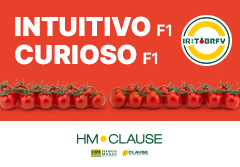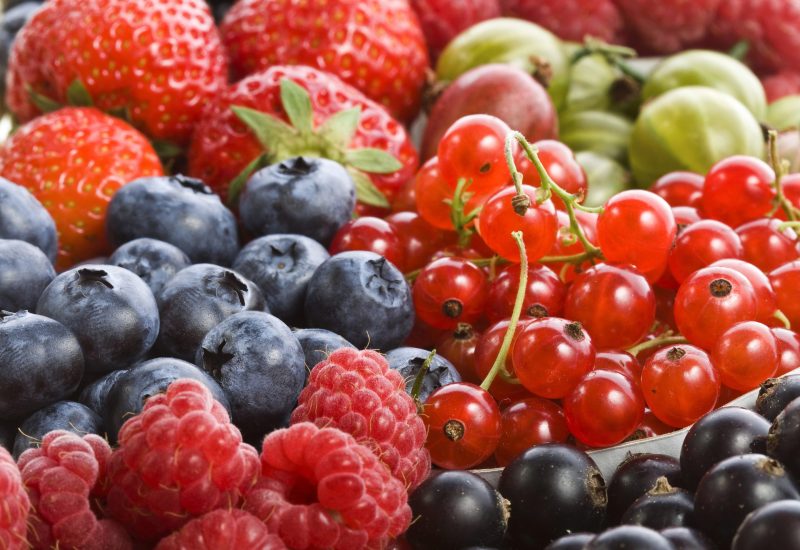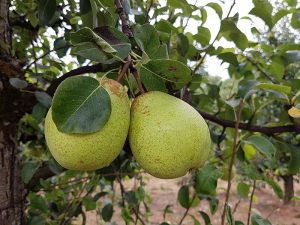Fruit Today talked to the Manager of Freshuelva, Rafael Dominguez, to discover the elements that will influence how the current campaign develops.
How is the current season developing?
In strawberries, we have had some cold days and that means the production will be delayed slightly. We ended planting later than usual. Therefore, some of the plantations have been delayed. In raspberries, we have a different problem: the storm Bernard caused significant damage to the raspberry crops, therefore the autumn-winter tonnage has been lower than expected and, logically, also lower than the previous campaign.
How is climate change affecting strawberries?
The months of October are not what they used to be, the first fortnight is usually warm, and this is not good for the plants that come from Castilla León, which are used to other temperatures. This makes planting and acclimatising the plant to the terrain more difficult. In general, now we start slightly later, although I must say that the rains that arrived after planting, at the end of November, helped to encourage the plants to develop correctly.
How long is the delay?
Around a fortnight.
How is the surface area for berries doing?
Specifically, strawberries are dropping by 3.5%. The total drop, grouping all the berries (raspberry, strawberry, blueberries and blackberries) together is 5%. Worth noticing is particularly the important decrease in raspberries, with 21.5%.
Strawberry production has reached 6,100 tonnes compared to last year’s 6,295; in terms of surface area, raspberries have dropped from 1,762 hectares to 1,380, and blueberries remain virtually the same, with 3,610 hectares. Blackberries are the ones that have seen the largest increase in surface area, 7.5%, rising from 143 hectares to 153. New blackberry varieties have been obtained that allow production virtually all year long, with increasingly better qualities.
The good behaviour of blueberries has consolidated them as the second red berry in Huelva.
With the confirmation of this data, is Huelva giving up on raspberries?
This subject is seriously affected by the competition from third countries, such as Morocco, which over the past five years has consolidated its raspberries on the markets. Strawberries at least had a quota up to a certain date, but this is not the case with raspberries.
We have passed on this unfair competition to both the Ministry and the European Union, for which we are asking a review of the agreements. What is obvious is that the European market is maintaining its raspberry consumption and this is reassuring in this situation. On the other hand, the consumption of blueberries has become highly consolidated.
What are the latest advances in market research?
The latest is the opening up of the Canadian market to Spanish blueberries. And we also have our sights placed outside the European Union, but these questions always take time due to the actual procedure set down by Europe, in which each country must open up the markets for themselves.
What is the availability of your own varieties?
Huelva continues backing Fresas Nuevos Materiales varieties. Its market share is growing all the time and now it has almost reached 35%.
What is concerning about this campaign?
Mainly the drought and the uncertainty regarding water. We continue to show our disagreement because the necessary work has not been undertaken to tackle a period of drought like the one we are currently suffering from. I am referring to the work necessary in the Tino-Odiel and Piedras basin, as well as the Alcolea dam, which was brought to a halt a long time ago. For all these reasons, we are going to restart our demonstrations. We have also asked for a meeting with the Ministry of Ecological Transitions and with the Andalusian Government to tackle these topics. The drought situation is becoming persistent and I will give you one piece of data: on the Huelva coastline there is not even one desalination plant. We don’t care where the water comes from because our goal is to produce food for the inhabitants of the planet. In other communities, they are already working with water from desalination plants without any problems.
Are you satisfied with the final solution that has been reached for Doñana?
We have always believed that the two public administrations had to reach an agreement and not use Doñana as a weapon, in which the people from Huelva on the one hand and our sector on the other are the ones coming off worst. What we want is to talk about Doñana properly and that the agreement between the two administrations can be used to carry out a sustainable agriculture plan such as the one we follow.
How do you see the marketing over these months?
Complicated. The truth is that it costs more and more all the time to produce due to the increases in costs, which are now beginning to slow down slightly, but that has a negative effect on the profitability of the crops. Added to this is the fact that consumers have empty pockets due to inflation. Above all, we are concerned about the recession in Germany, as it is one of our main markets.


















